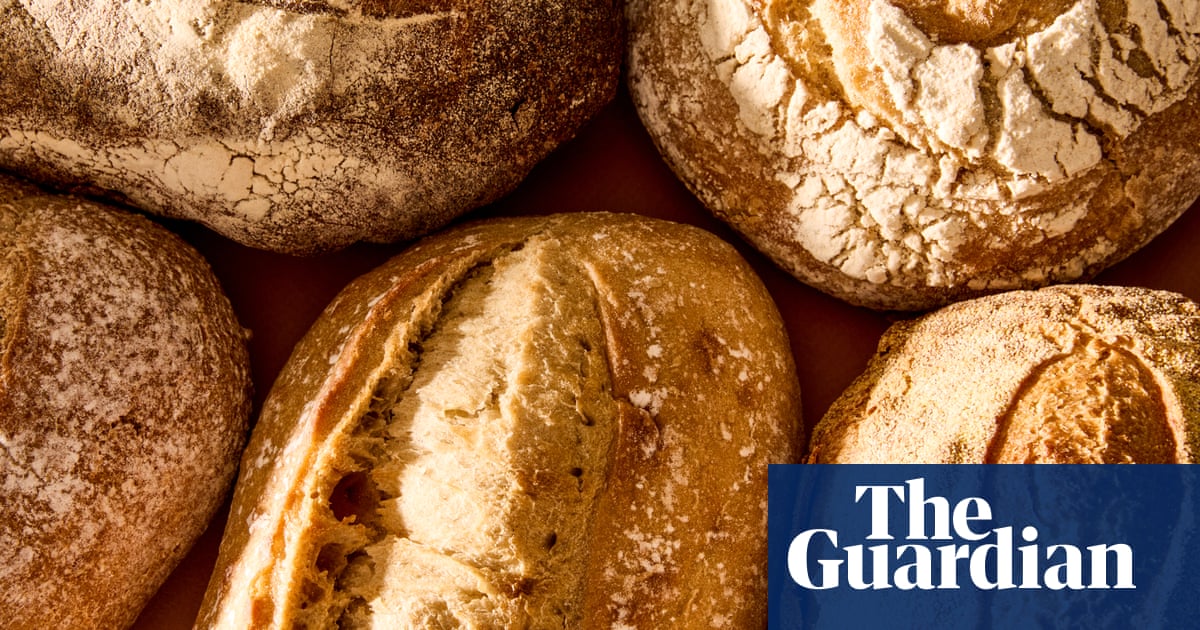Imake sourdough every week at home, so I feel that I’m a good judge of the flavour and texture of this style of baking. Overall, I was pleasantly surprised with the quality of a handful of these loaves, which had good texture, good flavour and a nice crumb. It was, however, interesting to discover that none had to declare the salt content in their loaves, because this has a surprisingly large impact on overall flavour.
None of the packaging for any of these breads, save for Wildfarmed, talked about pesticides and herbicide sprays, which is one of the things I ask about whenever I do buy bread these days – surely part of the point of spending more money is to know that the loaves are made from flour without that toxic load to it? It was great to see the supermarkets becoming more engaged in making better bread, too, and that Jason’s and Wildfarmed have made it on to so many high-street shelves.
£2 for 450g at Ocado (44p/100g)£2 for 450g at Tesco (44p/100g)★★★★★
This delicious loaf looked the part and seemed to have real provenance behind it. It had a great taste that translated into a wonderful crumb for our fish fingers the following week.
£4 for 600g at Waitrose (67p/100g)★★★★★
By far the best-looking of the bunch. A great flavour, a delicate tang and a crumb that stayed fresh for several days, and made great breadcrumbs and bruschetta after that. Very good quality for the price.
£2.35 for 400g at Waitrose (59p/100g)★★★★☆
This bloomer had a nice, tangy sourdough flavour and a great shape, but with quite a dense crumb. A pretty good flavour overall, and it lasted well over three or four days.
£2 for 360g in store at Co-op (56p/100g)★★★★☆
A lovely looking loaf, which is apparently made from a 12-year-old starter. The flavour was OK and the texture good, with nice holes and air in the crumb.
£2.65 for 400g in store at M&S (66p/100g)★★★☆☆
This San Fran-style loaf had a nice open crumb and not a bad flavour compared with most of the supermarket ones. The light tang was present but faint (apparently it’s made with a 30-year-old starter).
Sign up toThe Filter
Get the best shopping advice from the Filter team straight to your inbox. The Guardian’s journalism is independent. We will earn a commission if you buy something through an affiliate link.
after newsletter promotion
£2.10 for 400g at Sainsbury’s (53p/100g)★★★☆☆
Interestingly, this has some rye flour in it, to give it a hint of extra flavour, but it’s quite a flat, square-looking loaf that’s unappealing compared with some of the competition, and with quite a dense crumb, too. Not masses of flavour, either.
£1.89 for 400g in store at Aldi (47p/100g)★★★☆☆
This loaf had an impressive open texture and crumb, and was very nice looking. There were no ingredients listed on the back, but it definitely tasted like it wasn’t a straight white loaf. Could have done with a little more salt, though.
£1.99 for 600g in store at Lidl (33p/100g)★★☆☆☆
A very uniform-looking loaf with a pretty solid texture. I really didn’t love the flavour, though.
£2.10 for 400g at Tesco (53p/100g)★★☆☆☆
This loaf is described as “tangy” and “golden”, but in practice, it was pretty solid with a dense crumb, had very little flavour and some kind of glossy egg wash that felt very unlike a typical sourdough.
£2.10 for 400g at Morrisons (53p/100g)★☆☆☆☆
I didn’t love the look of this loaf and its shape, nor was I hugely impressed by its flavour. Overall, I didn’t love it.
